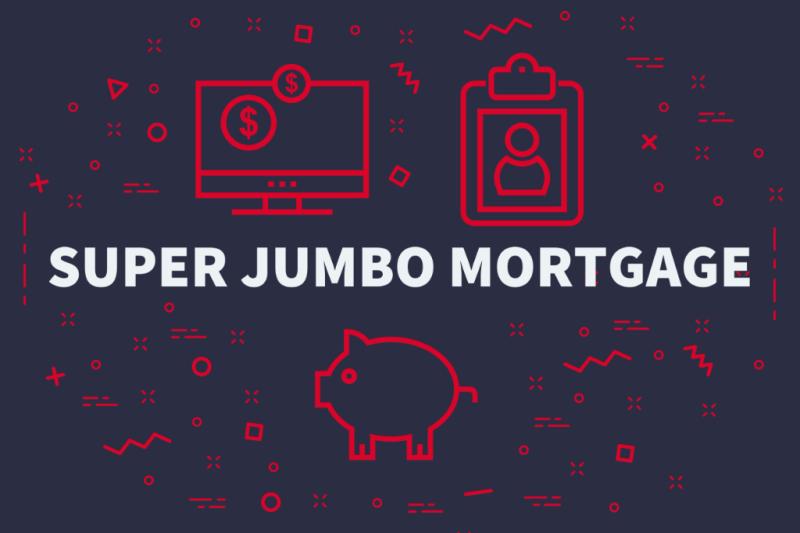What Are Super Jumbo Mortgages? A Guide For High-Value Home Financing

Home financing can be a complex journey, especially when purchasing high-value properties. Understanding the specifics of different mortgage options is crucial for those in the market for a luxury home or an upscale investment. This comprehensive guide is designed to demystify one such option: the super jumbo mortgage. Tailored for homes that exceed conventional mortgage limits, these financial products play a pivotal role in the luxury real estate market.
Understanding The Basics Of High-Value Home Financing
The financial landscape changes significantly when you're stepping into high-value real estate. While suitable for the average homebuyer, traditional mortgages fall short when financing luxury properties. This is where the concept of a super jumbo mortgage becomes relevant. It's a home loan designed specifically for properties priced well above the average real estate market value.
Distinguishing Between Jumbo And Super Jumbo Mortgages
The distinction between jumbo and super jumbo mortgages lies primarily in their loan limits and the value of the properties they finance. Jumbo mortgages are designed for properties that exceed the limits set by Fannie Mae and Freddie Mac, typically capping around $510,400 to $765,600, depending on the region. These loans are ideal for high-end properties that are above average in cost but not quite in the luxury bracket. Conversely, super jumbo mortgages cater to a niche market of ultra-luxurious properties. These loans start where jumbo mortgages cap, often servicing loans for properties worth millions. The exact threshold varies by lender but typically begins around $1 million. This division allows borrowers to choose a loan product that aligns more closely with their financial needs and property values.
Understanding these differences is crucial for potential borrowers. While jumbo loans offer a step up from conventional mortgages, super jumbo loans leap into a much higher echelon of property financing. This higher bracket often means that super jumbo loans are less standardized than jumbo loans, with terms, rates, and qualifications that vary significantly between lenders. This variation can be attributed to the increased risk of lending large amounts of money. As a result, borrowers looking at high-end properties must carefully consider which type of loan best suits their purchase and their financial situation.
Eligibility Criteria For Super Jumbo Mortgages
Securing a super jumbo mortgage requires more than a substantial income; it demands a strong financial profile. Lenders typically require a higher credit score for super jumbo mortgages than conventional or jumbo loans. A score well above 700 is often a prerequisite, though the exact number can vary by lender. The debt-to-income ratio, which measures how much of your income goes towards paying debts, is scrutinized closely. Lenders prefer a lower ratio, indicating that you have ample income to cover your mortgage payments and other debts.
Another critical factor is your cash reserves. Lenders may require you to have a significant amount of liquid assets, sometimes enough to cover a year or more of mortgage payments. This requirement ensures that you can still repay the loan even if your income is disrupted. For high-net-worth individuals, lenders might also consider your experience managing large debts, indicating your financial understanding and stability. These stringent criteria reflect the lender's need to mitigate the risk of issuing such large loans. As a result, securing a super jumbo mortgage often requires more thorough financial vetting than other types of home loans.

Understanding Interest Rates And Repayment Terms
Interest rates for super jumbo mortgages typically skew higher than those for smaller loan amounts, reflecting the increased risk lenders undertake. While the difference may seem small in percentage terms, it can translate into a significant amount, given the large size of the loan. Borrowers can usually choose between fixed-rate and adjustable-rate mortgages (ARMs). Fixed-rate mortgages offer the security of a constant interest rate and monthly payment for the duration of the loan, which can be appealing for long-term planning. ARMs, however, often start with a lower rate than fixed-rate mortgages. Still, this rate can fluctuate over time, which can be riskier but beneficial if interest rates decrease.
Repayment terms for super jumbo mortgages also vary. Loan terms can range from 10 to 30 years, with some lenders offering interest-only options for a portion of the loan term. This flexibility allows borrowers to tailor their mortgage to their financial situation and goals. However, it's vital to understand how these terms impact your monthly payments and the total amount paid over the life of the loan. Longer terms might reduce monthly payments but result in more interest paid over time. Short-term terms can increase monthly payments but decrease the total interest paid.
Navigating The Application And Approval Process
The application process for a super jumbo mortgage is thorough and often more complex than for smaller loans. Lenders require extensive documentation to assess your financial standing. This includes detailed information about your income, such as tax returns and pay stubs, and your assets, including bank statements, investment accounts, and other property holdings. Lenders will also verify your employment and conduct a rigorous credit check. They may also require appraisals or valuations of the property you intend to purchase, given the high value of the assets involved.
The approval process for a super jumbo mortgage is correspondingly rigorous. Lenders take the time to scrutinize every aspect of your financial life to ensure you can handle such a sizable loan. This means that the process can take longer than for smaller mortgages, and the criteria for approval are more stringent. Prospective borrowers should be prepared for this level of scrutiny and have all their financial documents to expedite the process. It's also wise to be aware of potential hurdles, like fluctuating income or recent large purchases, that could impact your application.
Exploring The Benefits And Drawbacks
Super jumbo mortgages enable purchasing luxury properties that might otherwise be out of reach, offering a key benefit to high-net-worth individuals looking to invest in high-end real estate. These loans can also offer more flexibility in loan amounts and repayment options than standard mortgages, tailored to the unique needs of affluent borrowers. However, the higher interest rates associated with these loans mean that the cost of borrowing is significantly higher over time. This factor must be carefully considered against the potential benefits of owning a luxury property.
Another consideration is the stringent eligibility requirements. The high thresholds for credit scores, income levels, and cash reserves mean these loans are only accessible to a select group of borrowers. This exclusivity can be a barrier for those on the cusp of qualifying. Additionally, the extensive application and approval process, while necessary to protect the lender's interests, can be time-consuming and invasive. Borrowers need to weigh these drawbacks against the opportunity to finance a luxury property, ensuring that the benefits align with their long-term financial goals and lifestyle.
Strategies For Securing The Best Loan Terms
To secure the most favorable terms on a super jumbo mortgage, you must present yourself as a low-risk borrower. Maintaining a strong credit score is one of the primary factors lenders consider. Regularly monitoring your credit report and promptly addressing any issues can help keep your score high. Minimizing debt is another key strategy. A lower debt-to-income ratio makes you more attractive to lenders and can qualify you for better interest rates.
Shopping around with different lenders is also crucial. Different financial institutions may offer varying terms and rates, so exploring multiple options is beneficial to finding the best deal. Building a good relationship with a financial institution can also work in your favor. Suppose you have a history of responsible financial behavior with a bank or lender. In that case, they may be more inclined to offer you favorable terms. Additionally, consider working with a mortgage broker who specializes in high-value loans. They can provide valuable insights and access to lenders you might not find alone.
Conclusion
Super jumbo mortgages are vital for financing luxury real estate, but they require careful consideration and planning. By understanding the nuances of these loans and preparing adequately for the application process, you can make informed decisions that align with your financial goals and lifestyle aspirations. Whether you're a seasoned investor or a first-time luxury homebuyer, a clear understanding of super jumbo mortgages can unlock the door to your dream property.
More to Read:
Previous Posts:











